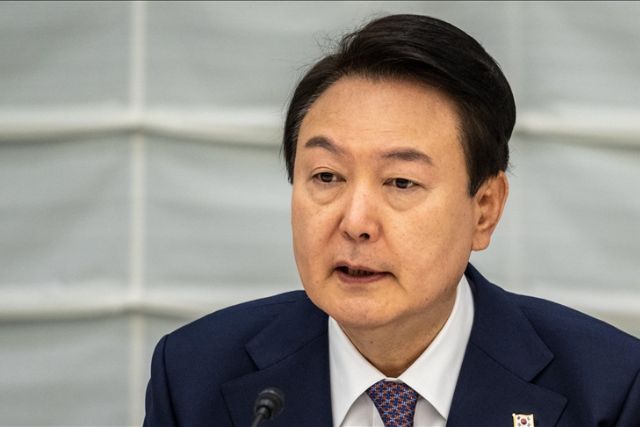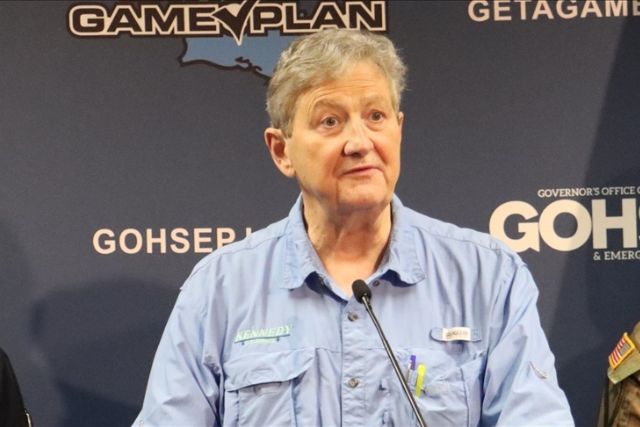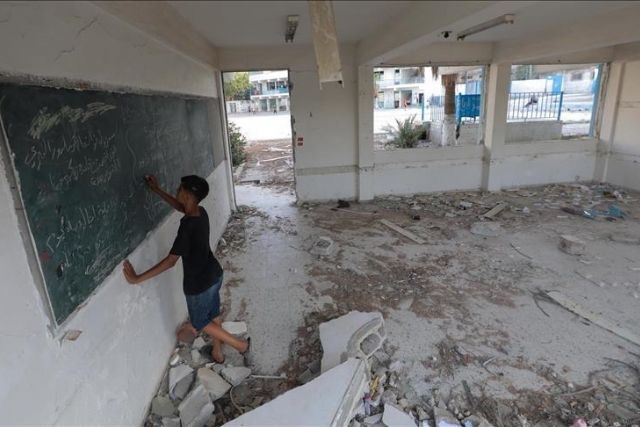South Korea's president defends his visit to Japan despite domestic backlash
'Korea-Japan relations must move beyond the past,' says Yoon Suk Yeol

ANKARA
South Korean President Yoon Suk Yeol on Tuesday defended his initiative to improve bilateral relations with Japan, saying the two countries must leave the past behind and move forward.
His latest remarks came after a growing backlash at home following his recent tour to Japan and an earlier decision to compensate Japan's wartime forced labor victims through a local foundation.
"Korea-Japan relations must move beyond the past," Yoon said at a Cabinet meeting, according to Yonhap News Agency.
"I also could have chosen the comfortable path for immediate political gains and left the worst-ever Korea-Japan relations as they are," Yoon said, without naming the previous Moon Jae-in government.
Yoon visited Tokyo last week and met with Japanese Prime Minister Fumio Kishida, becoming the first South Korean president to visit Japan since 2011.
His country's main opposition Democratic Party criticized Yoon's visit and called it a move against South Korea's national interest, according to the agency.
The opposition also opposed Yoon's government's decision to establish a public foundation in Seoul to compensate victims of Japanese forced labor and sexual exploitation during WWII.
In 2018, a South Korean court asked Japanese firms to pay compensation to victims of Japan's wartime forced labor.
Tokyo rejected the ruling, claiming that the issue was resolved in a postwar treaty signed by the two countries in 1965 when they established diplomatic relations.
On Thursday, Kishida welcomed Seoul's decision to drop its demand for settlement with Japanese firms to resolve the decades-long issue of wartime forced labor and sexual exploitation, saying, "There are several deliverables as to how we respond to it."
In 2019, South Korea and Japan imposed trade restrictions on each other that further dented their relations.
However, the two sides on Thursday agreed to begin economic and bilateral security dialogues.
"I thought I would be breaching my obligations as president if I provoked hostile nationalism and anti-Japanese sentiment for domestic politics," Yoon explained.





